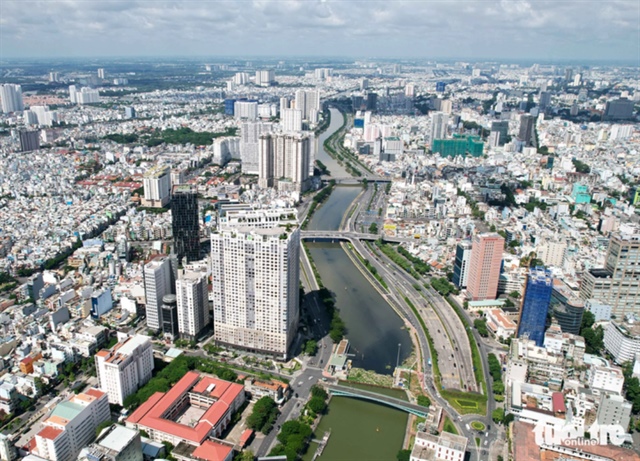|
Small real estate firms in Ho Chi Minh City teeter on brink of bankruptcy
Many small construction and property enterprises in Ho Chi Minh City are struggling to remain in business due to huge debts, the inability to collect debts, and poor access to legalized projects.

Many small construction and real estate firms in Ho Chi Minh City are on the verge of bankruptcy due to huge debts. Photo: Ngoc Hien / Tuoi Tre
|
Some have filed for bankruptcy, while others are on the way.
The Ho Chi Minh City Union of Business Associations (HUBA) said in its report on the health of its members recently sent to the municipal People’s Committee that the gloomy real estate market has taken a heavy toll on construction firms, while property companies cannot afford to make debt payments for bonds.
Besides, these small firms found it hard to access public investment projects due to their limited capital, putting several on the verge of bankruptcy.
The local housing market has slowed down over the past few months following cooling investor confidence, according to HUBA.
The ailing housing industry has hampered the growth of the construction, construction material manufacturing, and real estate brokerage fields, as well as lowered revenue from public land bidding, public land leasing, and land use right transfer, among others.
Efforts to shore up the real estate market are needed to stabilize socioeconomic development, said HUBA.
HUBA added that the business community proposed adopting separate policies for each segment to develop the real estate market sustainably.
As planned, the city will develop 50 million square meters of housing during the 2021-25 period, but the number of completed housing units, mainly social homes and accommodation for workers, is expected to stay low.
The housing undersupply is attributed to obstacles related to the legal framework and building procedures.
Therefore, property and construction firms asked the municipal authorities for effective policies and support so that they could meet the housing demand of residents.
HUBA also pointed out challenges facing the industrial property industry in Ho Chi Minh City, including a shortage of industrial land and complicated regulations on land.
In addition, requirements on land leasing and land use right certification have reduced the competitiveness of industrial parks in the city compared with other parks in neighboring localities.
HUBA suggested the Ho Chi Minh City administration should develop more large concentrated industrial zones in outlying districts to attract multinational firms, such as Apple, Boeing, Google, Siemens, Amazon, and Foxconn, contributing to creating jobs for local employees and boosting supporting industries.
Meanwhile, the commercial and tourism property segments have been mostly paralyzed by the COVID-19 pandemic and legal procedures, said HUBA, adding that the city should tap the advantages of land, climate, rivers, and available workforces to foster the industry and generate stable revenue.
Tuoi Tre News
|